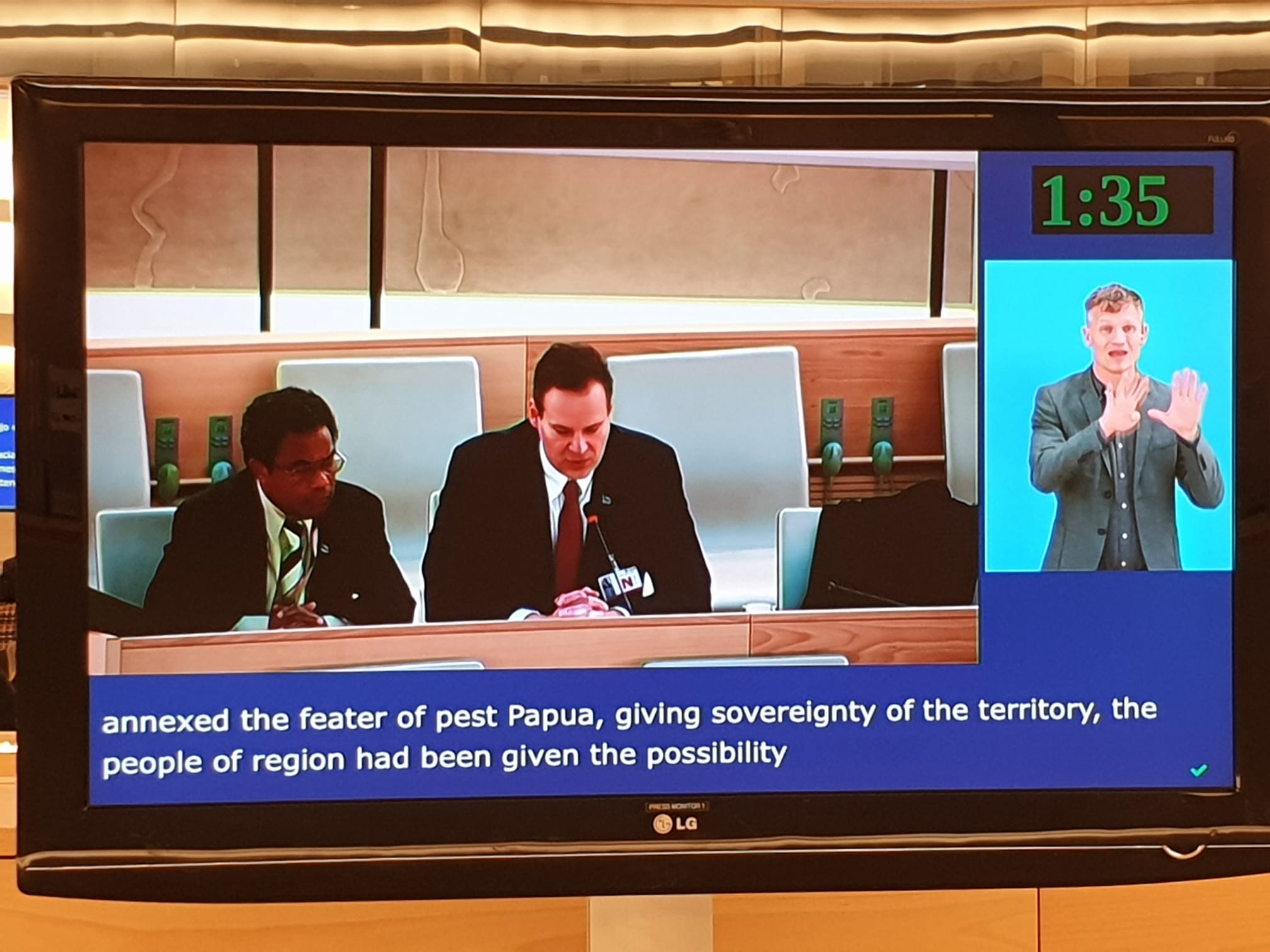The United Nations Forum on Minority Issues held its fifteenth session on 1 and 2 December 2022. Its theme was: “ Review. Rethink. Reform. 30th anniversary of the UN Declaration on Minority Rights “. The Forum shall analyse practices, challenges, opportunities and initiatives in addressing conflict prevention and the protection of the human rights of minorities, in line with the principles and rights enshrined in the UN Declaration on the Rights of Persons Belonging to National or Ethnic, Religious and Linguistic Minorities and other relevant international instruments.
The two-day forum brought together a large number of representatives from minorities and indigenous Peoples from all parts of the globe in order to inform the United Nations Rapporteur on Minority Issues about their situation. Many heartbreaking, disturbing and urgent stories and appeals echoed through the halls and chambers of the United Nations building in Geneva. Dozens of representatives took the floor to briefly describe their most pressing issue.
The West Papua Association was also present with a four-person delegation during these two days and held many fruitful meetings with representatives from other minorities, international organisations and others in order to create greater awareness of the situation of West Papua and garner support for a human rights dialogue
Mr. Jeroen Zandberg made the following contribution to the conference on Friday 2 December 2022:
On May first, 1963, Indonesia annexed the territory of West Papua. As part of the agreement giving sovereignty over the territory, the people of the region had to be given the opportunity to determine their future in a referendum. This referendum was held in 1969 under the title ‘Act of Free Choice’, but it was far from free, because only a select group of Papuans, appointed by the Indonesian government, could decide the fate of the Papuans. The outcome was therefore predictable and the region remained part of Indonesia. The following decades saw many human rights violations against the indigenous Papuans as well as large scale destruction of the environment. Indonesia did not live up to the obligation of all States to protect all of its citizens.
The injustice done to the Papuans is a stain on Indonesia’s obligations. It is therefore also a challenge for Indonesia, as it is for the Papuans, to find a just solution for the situation in the region.
What will the future identity of the western part of the island of New Guinea look like?This future identity has roots in the past, but which past? Is that the past that Indonesia promotes or the past that the Papuans who are opposed to current Indonesian politics advocate? Who will decide about this identity now and in the future? These questions deserve an answer. Above all, they deserve a dialogue.
A dialogue between independent, equal parties striving for a new reality for the Papua region that has human rights at its core. This political dialogue will largely determine the future identity of the region and will bring Papuan leaders in Papua and beyond, closer together and thereby represent the interests of the Papuans to the fullest.
Indonesia established the Indonesian National Commission on Human Rights back in 1993, which should monitor and help solve human rights issues in Indonesia. However, this Commission has not genuinely taken up the issue of West Papua. Now is the time for them and the Indonesian government to open and facilitate a real dialogue that is open to all Papua groups and leaders. The citizens of Indonesia are waiting for action and the world is watching.
Thank you,
Jeroen Zandberg
